Abstract
Fresh rat and mouse lymphoid cells have been labelled by stable linkage with tetramethylrhodamine isothiocyanate (TMRITC). A change in intensity, either an increase or decrease of the fluorescent emission of the cells, detected by microfluorimetry, was induced by mitogen stimulation or the mixed lymphocyte reaction. The change in fluorescence was observed within 3 h of mitogen stimulation and within 0.5 h in the mixed lymphocyte test. These early cellular responses were detectable consistently whether the labelling was done before or after mitogen stimulation; post-labelling only was studied in the mixed lymphocyte reaction. The method should provide a time-saving practical procedure for early detection of the lymphoid cell responses and would readily lend itself to flow cytofluorimetry for possible routine diagnostic use.
Full text
PDF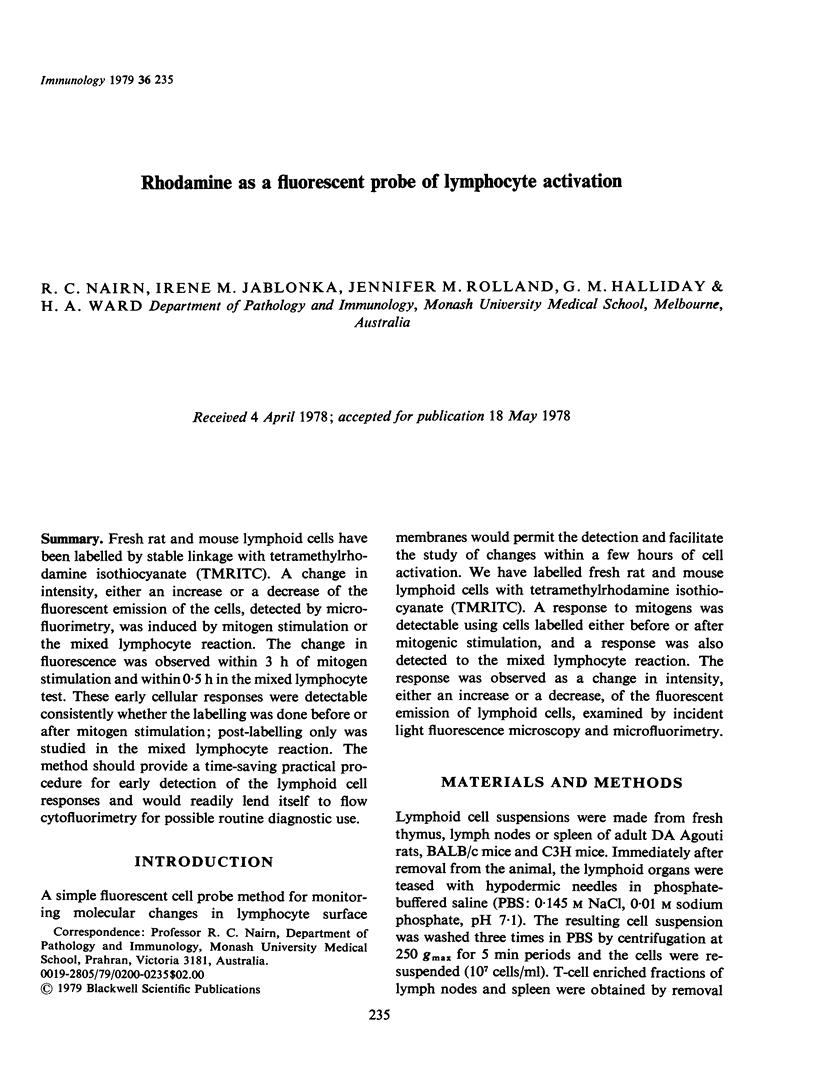
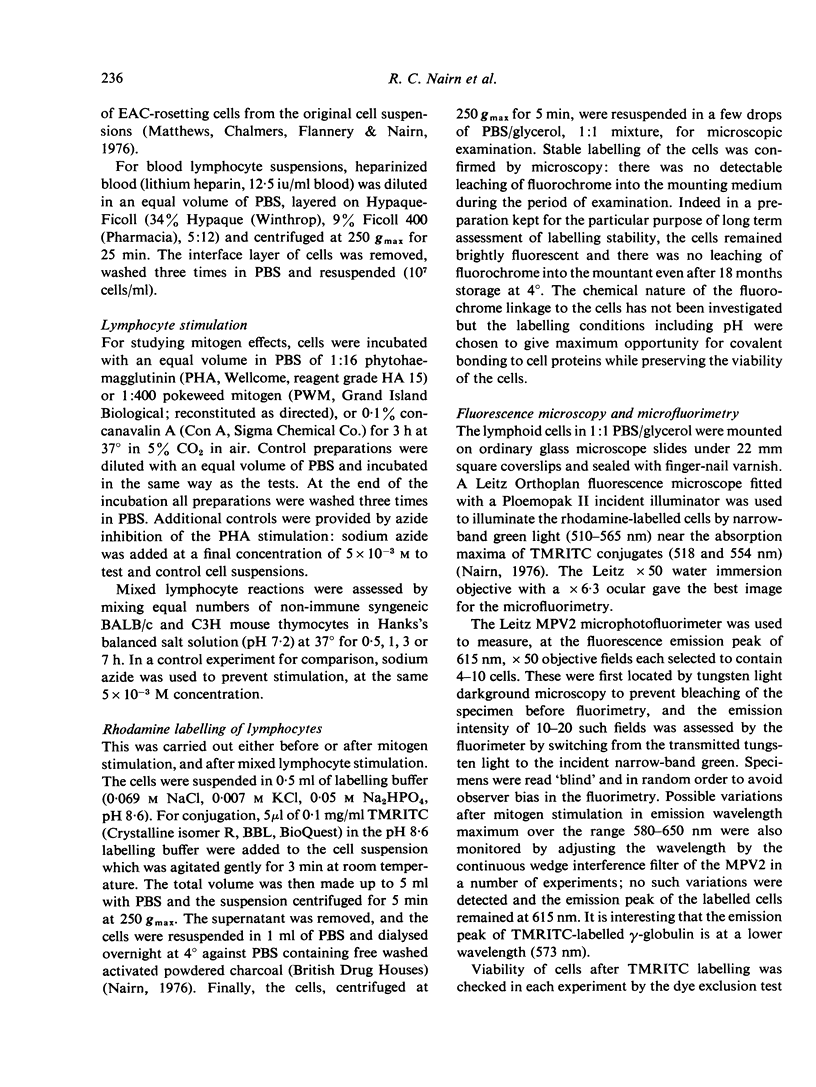
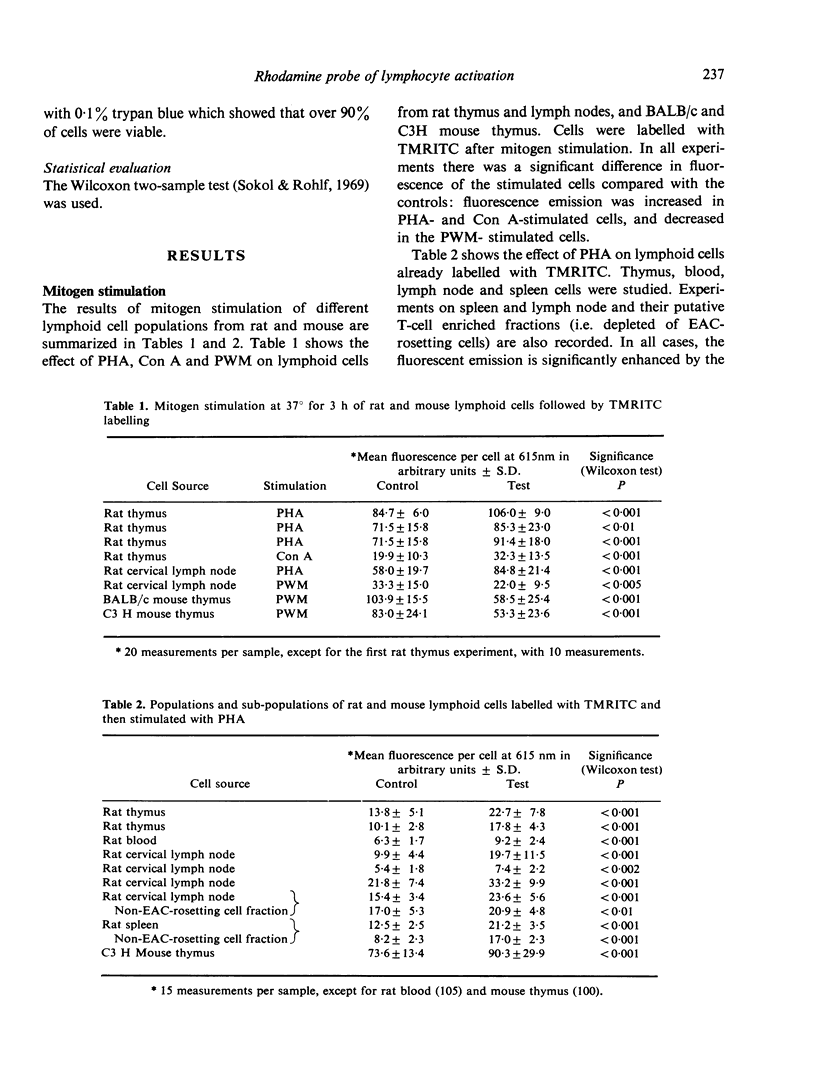
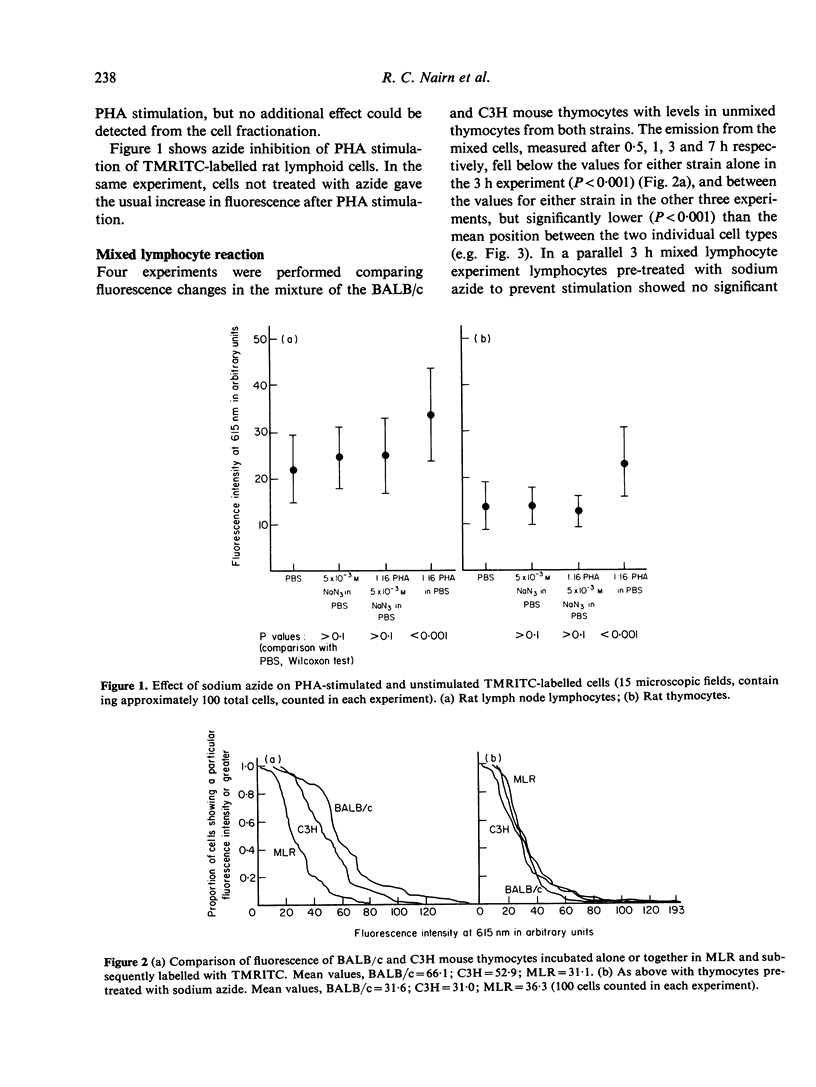
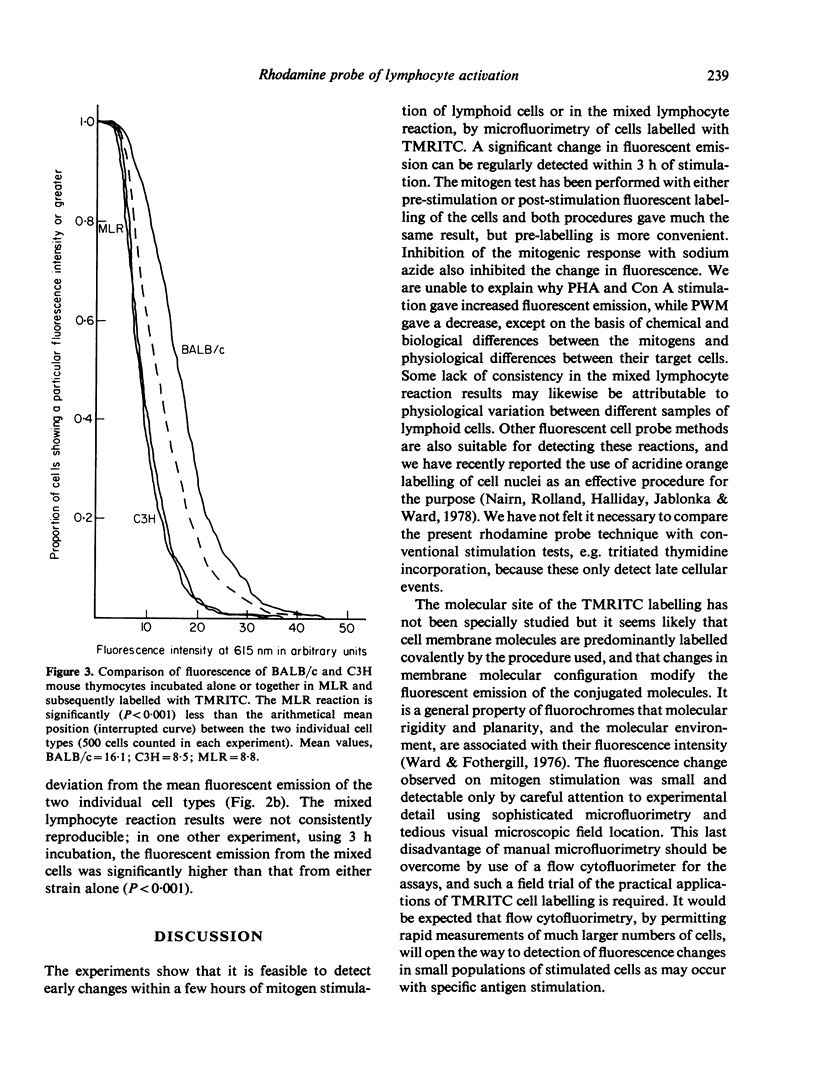
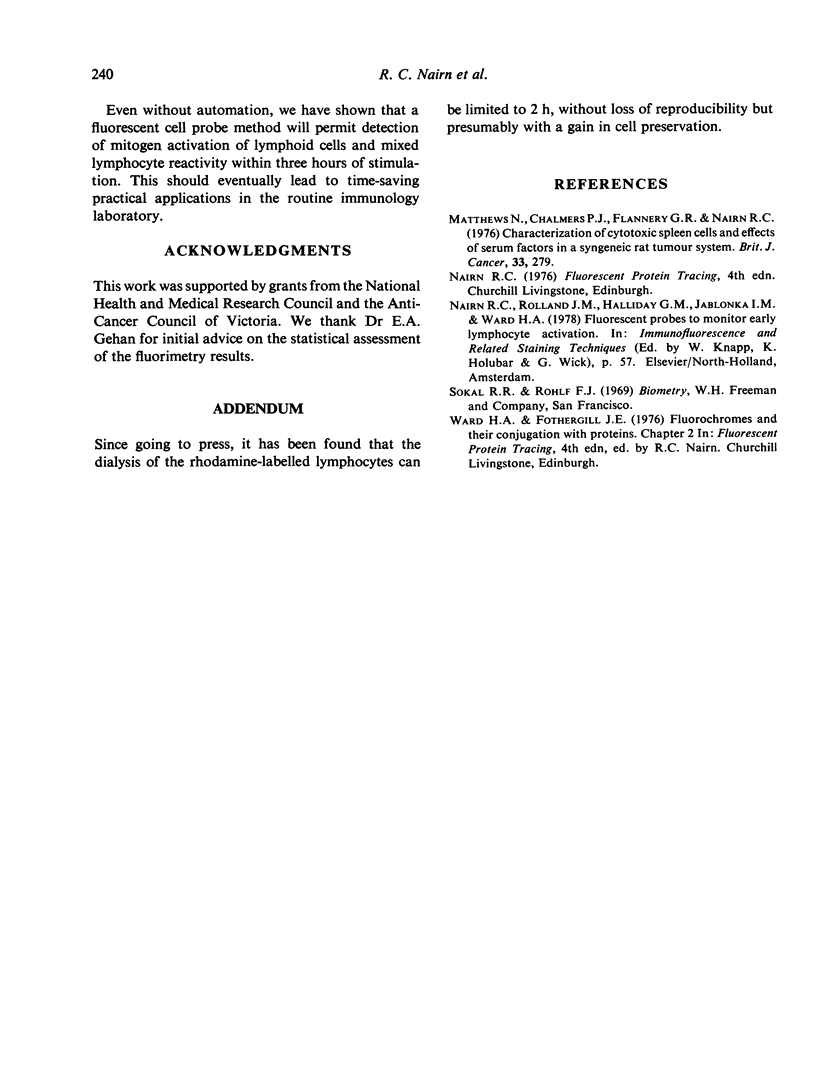
Selected References
These references are in PubMed. This may not be the complete list of references from this article.
- Matthews N., Chalmers P. J., Flannery G. R., Nairn R. C. Characterization of cytotoxic spleen cells and effects of serum factors in a syngeneic rat tumour system. Br J Cancer. 1976 Mar;33(3):279–289. doi: 10.1038/bjc.1976.41. [DOI] [PMC free article] [PubMed] [Google Scholar]


